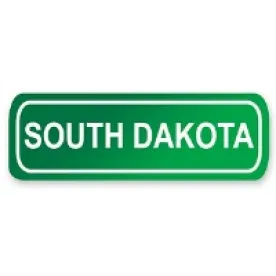On March 22, 2016, South Dakota Governor Dennis Daugaard signed into law Senate Bill 106, which requires any person making more than $100,000 of South Dakota sales or more than 200 separate South Dakota sales transactions to collect and remit sales tax. The requirement applies to sales made on or after May 1, 2016.
The law clearly violates the physical-presence requirement under Quill, and that’s precisely what the legislature intended. The law is intended to force a challenge to the physical presence rule as soon as possible.
The South Dakota Department of Revenue (Department) has begun taking steps to enforce the law. We are aware that remote sellers recently received letters from the Department giving the sellers a deadline of April 25, 2016 to either register with the state and commit to collection, or notify the Department that the seller does not meet the law’s gross receipts/sales transactions thresholds. If the seller does neither of these things, South Dakota will assume that the seller does not intend to comply and that South Dakota may initiate legal action against the seller under the new law.
Remote sellers who have received these letters, as well as any other remote sellers who have exposure under the new law, are probably looking for answers to one question: Should we register and begin collecting? There are two important issues to discuss in determining whether to comply: (1) retroactivity and (2) refunds.
Retroactivity
Historically, when faced with new tax impositions of uncertain constitutionality, taxpayers have been concerned with the retroactive imposition of those taxes if they are sustained. In this case, several sections, including sections 2, 3, and 6 of the bill, appear to have been drafted to address this issue. The bill authorizes the Department to file a declaratory judgment action. Once that is filed, the Department cannot enforce the economic nexus standard until the litigation is over. Thus, it appears that the legislature has taken steps to attempt to reduce the risk of retroactivity.
Refunds
Additionally, voluntarily complying and then filing a refund claim could be worse than waiting. Historically, taxpayers concerned about retroactivity have sometimes paid the tax, filed a refund claim, and then challenged denial of the refund claim. However, Section 7 of the new law provides that if a taxpayer complies with the new law but then files a refund claim, “no claim may be granted on the basis that the taxpayer lacked a physical presence in the state and complied with [the new law] voluntarily while covered by the injunction provided in section 3.”
There is a question about whether this is a valid waiver of a taxpayer’s rights. Section 7 essentially requires taxpayers to give up any opportunity to challenge the new law’s constitutionality in exchange for protection from the imposition of retroactive tax. Under the doctrine of unconstitutional conditions, the government generally cannot require a person to give up a constitutional right in order to receive government benefits. See, e.g., Arkansas Writers’ Project, Inc. v. Ragland, 481 U.S. 221, 227-31 (1987) (holding that a state cannot require publishers to publish certain content in exchange for a tax exemption). However, as discussed above, the legislature took steps to remove the retroactive imposition of tax, so it is unclear if the doctrine would apply. Note that if the provision is declared unconstitutional, a seller could stop complying but would potentially be unable to get a refund of the tax voluntarily paid.
Conclusion
Any remote sellers with potential exposure under South Dakota’s new law – regardless of whether they’ve received a letter from the Department of Revenue – would be well advised to act quickly in determining how to proceed.
Given how lenient courts have been on retroactivity, the issue will always be lurking in the background. However, in this bill, the legislature appears to have taken steps to reduce the risk of a retroactive application. There is also a potential downside to paying and filing a refund claim. Our firm represented the seller in Quill more than 20 years ago, and we have boxes and boxes of case files to prove it. It’s likely that another seller will have boxes and boxes pretty soon, regardless of the outcome. Sellers, whether they have received a letter from South Dakota or not, should discuss the options with their tax professionals.




 />i
/>i

